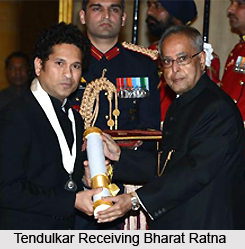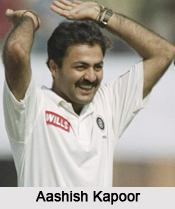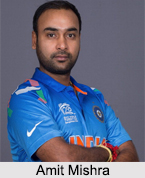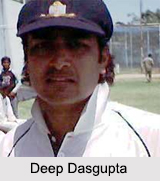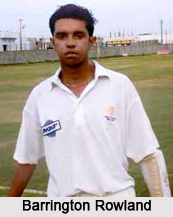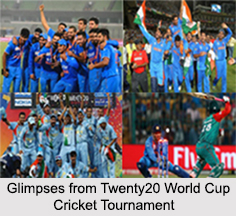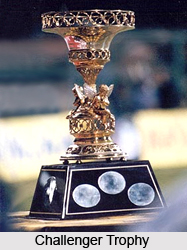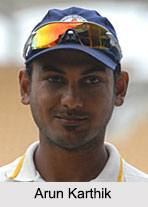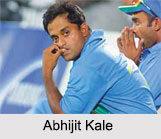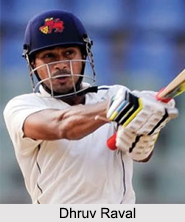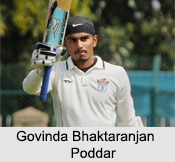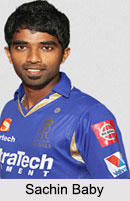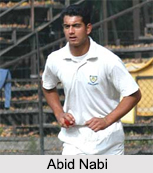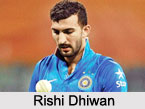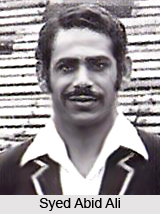 Syed Abid Ali was born on September 9, 1941 in Hyderabad. He was a versatile Indian cricketer. This hefty-stature sportsperson was a diligent batsman, a medium pace bowler and a fantastic fielder.
Syed Abid Ali was born on September 9, 1941 in Hyderabad. He was a versatile Indian cricketer. This hefty-stature sportsperson was a diligent batsman, a medium pace bowler and a fantastic fielder.
Abid Ali did his schooling from the St. George`s Grammar School and All Saints High School in Hyderabad. In 1956, his fielding prowess caught the attention of the School Level Cricket Selection Committee. He was offered the golden opportunity to play for Hyderabad Schools. He pocketed 82 runs against Kerala and was honoured with the best fielder`s prize. A few years later when the cricket team of the State Bank of Hyderabad, came into existence, he was furnished with a job then. He was appointed as a wicket keeper, prior to his changing roles into a bowler.
Abid had the enough of genius, to elevate himself as a cricketer in the Hyderabad Junior Team in 1958-59. He further proceeded into the state Ranji team the following year. He tasted success after a few years in 1967, when he made his first century in the Ranji tournament. Good fortune soon embraced him, because he was invited for a cricket tour to Australia and New Zealand the same year.
He ultimately reached his desired destination of the Indian Cricket Team. He made his debut in the Test Cricket against Australia. He probably substituted the injured Captain, Mansoor Ali Khan Pataudi.
Abid hit 33 runs in the scoreboard of both the innings and won 6 wickets for 55. This was one of the best debut performances in the history of Indian cricket. He was assigned the grave task of the opening batsman in the third Test. He yielded 47 runs. The data of his first ten master strokes goes as 4,3,2,4,4,3,3,4,4,4. His performance-curve on the merit graph was on the rise. He delivered two magnificent innings of 81 and 78 in the final Test match.
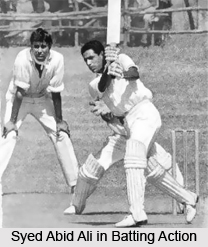 It was pretty predictable, that when this hero returned home, in Hyderabad, during March 1968, he was greeted with tremendous applause. Abid Ali was a man of boldness. He had enough of courage to intentionally throw a ball, in order to show his resentment against the fishy bowling-strategy of the other team New Zealand, during the Christchurch Test in New Zealand.
It was pretty predictable, that when this hero returned home, in Hyderabad, during March 1968, he was greeted with tremendous applause. Abid Ali was a man of boldness. He had enough of courage to intentionally throw a ball, in order to show his resentment against the fishy bowling-strategy of the other team New Zealand, during the Christchurch Test in New Zealand.
Abid was a vital player in India`s first victories in West Indies and in England in 1971. He was executed the responsibility of a non-striker when Sunil Gavaskar stormed the West Indies in the Port of Spain Test, with a gust of speeding runs. Abid made the situation difficult for West Indies, busy in pursuing the tough target in the penultimate Test Match of the series. Abid out rightly took the wicket of Rohan Kanhai and Garry Sobers in consecutive balls.
Abid Ali sustained his brilliant skills. A few months later, he struck the phenomenal boundary which gave India a decisive win over England by four wickets at the Oval. In the Manchester Test of this series, he grabbed the first four wickets for 19 runs before lunch on the first day. This was the deathblow which reduced England at 4 for 41. Abid Ali featured in nine more Test matches. Unfortunately, his standard of merit declined. He had a score of 70 runs against New Zealand in the 1975 World Cup, which was his last international innings. He sustained his involvement with first class matches for extra four years. Records reveal that Abid Ali had a career aggregate above 2000 runs and more than hundred wickets for Hyderabad in the Ranji Trophy Tournament. His acme of perfection was the optimum individual score of 173 runs against Kerala in 1968-69 and most significant bowling, procuring 6 wickets for 23 against Surrey at the Oval Stadium in 1974.
Abid Ali served as the coach of the junior team of Hyderabad for some years. He next shifted to California in 1980. He tutored Maldives in late 1990s. Then, he guided the Andhra Pradesh Team that rose triumphant in the South Zone league in Ranji Trophy in 2001-02. His subsequent project was with the UAE between 2002 and 2005. His recent address is at California, where he trains the young talents at the Stanford Cricket Academy. Syed Abid Ali stands as a good cricketer with a career-graph of 212 matches and 8,732 runs, and 397 wickets in his treasure

